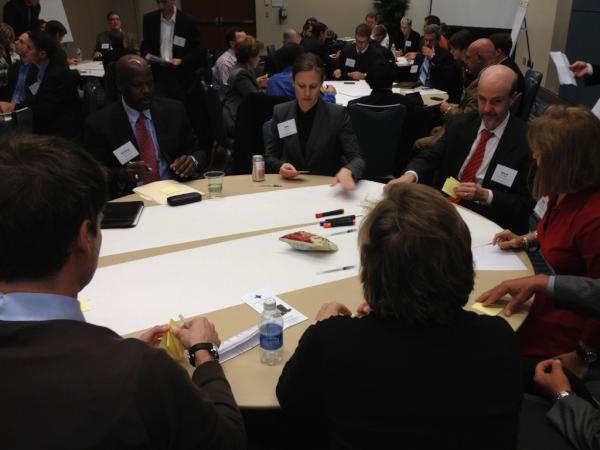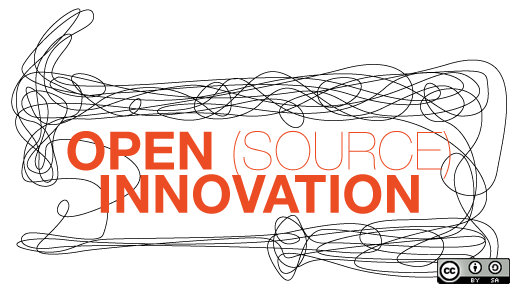Last January, the City of Raleigh partnered with the Raleigh Chamber of Commerce, North Carolina State University, and local businesses to host the inaugural Innovation Summit. The purpose of the summit was to bring business leaders, entrepreneurs, marketers, investors, city officials, and thought leaders together for an afternoon of discovery. Open source was at the heart of how the organizers were looking to achieve consensus from those invited to participate.
There were four main topics organizers focused on to kick off this initiative: funding, partnerships, branding, and space for an innovation center. The summit started with two keynote speakers that helped set the stage for the day.
The first speaker was Tom Murphy, former mayor of Pittsburgh, PA who helped revitalize the city through urban planning. He shared some of the success stories from Pittsburgh, but also discussed how other cities and regions are innovating in the United States and around the globe.
Murphy talked about Silicon Valley. He told attendees that RTP "enjoys the country's second-best brand behind Silicon Valley. But you've lived off that brand for 20 years."
The next speaker was Mitchell Silver, City of Raleigh Planning Director. Silver highlighted some of the population trends and outlooks for the Research Triangle Park (RTP). He stunned the crowd with his myth busters, sharing several misconceptions about the area, then showing the data behind the myth. For example, there is a perception that RTP doesn't have enough investors. In fact, as Silver pointed out, there are 101 different investors in 25 active venture capital companies (via Center for Economic Development, p. 7, Innovate Raleigh report). Attendees were now inspired and ready to collaborate.
After the keynotes, attendees split into four groups, each aligned to a topic area. I lead the brand group in a design thinking session. The 40 participants in the room didn't know that the open source process they were using during the session was part of the lesson. We captured ideas, voted on them, and discussed the winners.
 The session lasted for two hours. We split the room into four groups, each answering the same questions at their individual tables. I was curious if there would be an overlap of ideas across the groups, but to my surprise, there wasn't. There were some common themes, but there was a lot of diversity in the answers.
The session lasted for two hours. We split the room into four groups, each answering the same questions at their individual tables. I was curious if there would be an overlap of ideas across the groups, but to my surprise, there wasn't. There were some common themes, but there was a lot of diversity in the answers.
The design thinking process helped us create at atmosphere of trust, sharing, and collaboration. Not only was this effective for the branding group, but the other groups experienced similar results.
At the end of the day, all the groups came back together and a spokesperson gave a summary of what happened in their session. The best part about the Innovation Summit wasn't that we came together and shared ideas, but that the real work would continue long after the lights went out.
After the event was over, a report was created about the day's progress and made openly available. Monthly meet-ups have helped maintain a constant drum beat and advocates continue to highlight innovative businesses and ideas happening in the community. For a constant stream of updates, follow the hashtag #innovateral on Twitter.
It was really powerful to see my local government partner with a major educational institution and the business community to host the Innovation Summit. And it wasn't this one-off event where people come together and generate a bunch of ideas and then go home. Organizers are developing a roadmap and creating milestones for the future. And the icing on the cake is the open source approach that was taken, the way organizers work to be inclusive, and advocates want to share the information and the stories.
Which brings me to a few questions. Would you attend an innovation summit sponsored by your local government? How would you make it feel genuine for your community?
Maybe your local community isn't big on the topic of innovation. Is there another topic you think your government would be more interested in? Would your town hold an event to crowdsource ideas, collaborate with the community, and generate results?
Photo credits: @Adriadn7






Comments are closed.